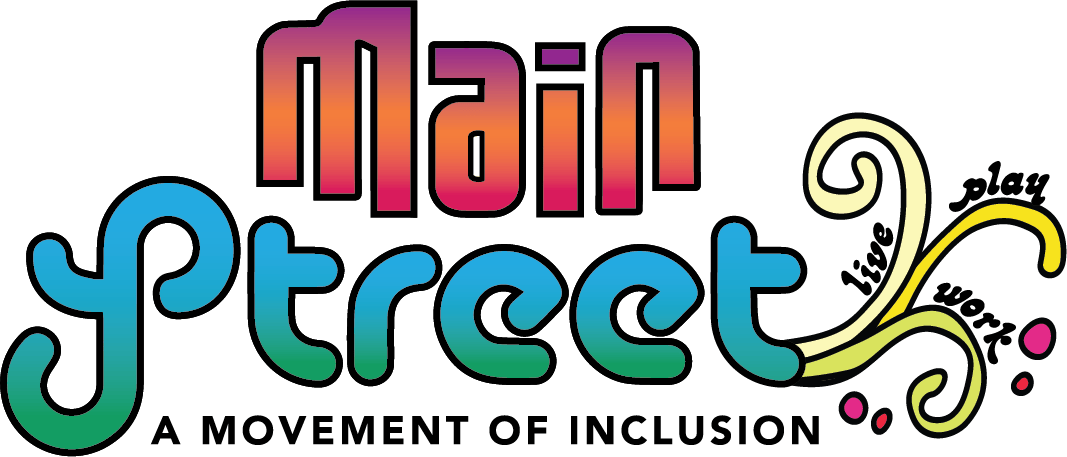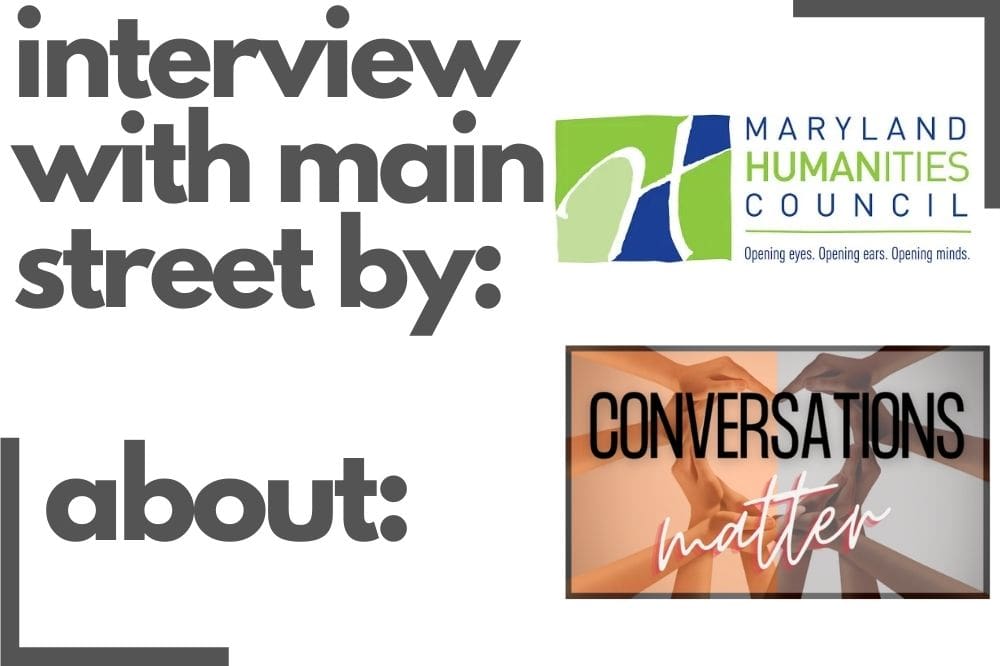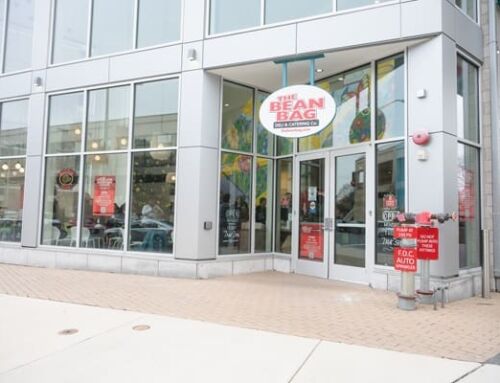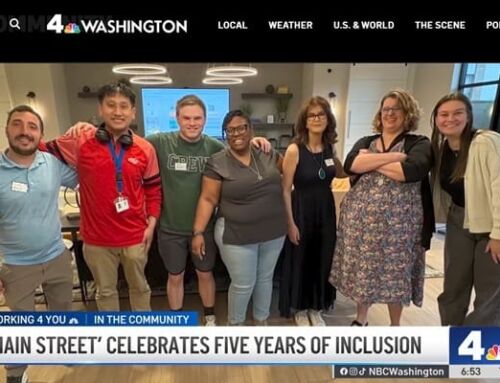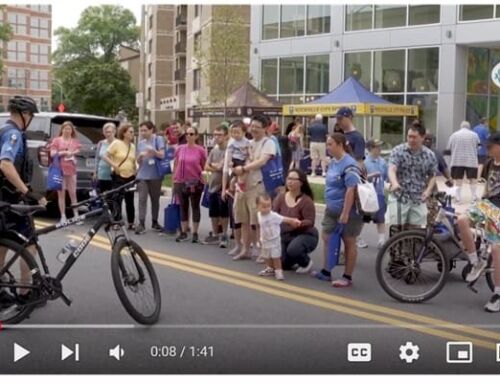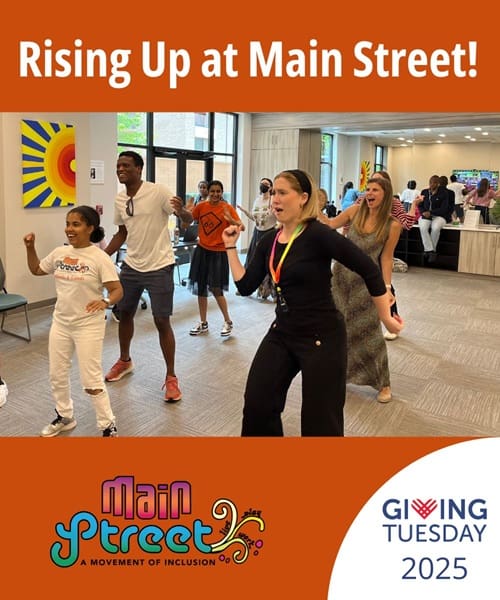MARYLAND HUMANITIES BLOG (2/3/21)
We recently awarded a grant to Main Street Connect, a community-centered apartment complex and community center where 25% of the apartments are designated for adults with disabilities. We are funding Conversations Matter, their free four-part series of events on racial justice that concludes on February 9. One session focused on disabled people of color. We interviewed founder Jillian Copeland about the project, and centering disabled people in antiracist education.
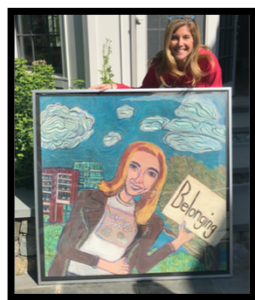 Q: Can give a brief description of Main Street Connect?
Q: Can give a brief description of Main Street Connect?
Main Street is a lot of things and often hard to describe. Main Street is a nonprofit. Main Street is an apartment and community center and most importantly, Main Street is an inclusive community providing a place for all people to belong. Our mission is to create dynamic opportunities through affordable, inclusive housing and community engagement so people of all abilities can live their best lives.
Q: How did you decide to found Main Street Connect?
I have four sons. My third son, Nicol has developmental disabilities and medical challenges. When he was about 14 years old I began to explore what his future would look like. It started with google searches which was the springboard to virtual visits and local research. I was extremely disappointed to find a lack of opportunities in inclusive housing, programming and employment and thought it was unacceptable. That thought was the moment Main Street was born.
Q: How did you come up with Conversations Matter? Has the project changed since its inception, due to COVID-19?
Our Conversations Matter series was conceived during a conversation I had with my dear friend Donte Brown…After the passing of George Floyd, Donte and I, along with the rest of the world, were outraged and sat down to have a conversation about what we could do–a Black male and white privileged female—to effect change. The next day I sat with my Main Street staff and shared this dialogue and experience. Being a leader in the equity and inclusion space, we determined we have a responsibility to start this critically important conversation and hopefully effect change.
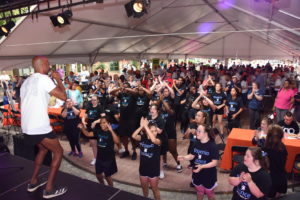 Q: How did working with disabled people impact how you put the program together?
Q: How did working with disabled people impact how you put the program together?
Creating an inclusive space for people to belong means that we serve and provide programming for all people—all ages, stages, cultures, races, etc….As we created our Conversation Matters, and as we create all of our programming, we understand universal design and inclusive strategies are needed so people of all abilities can access our programming. On our Conversations Matters resource page, we have provided resources of various reading levels and different modalities. Additionally, this series offers accessibility options including line captioning and sign language interpreters and various opportunities for feedback and evaluation. Lastly, we share agreements prior to starting our program to ensure all voices are heard and conversations are respectful.
Q: Could you discuss the role the humanities–like history and literature–play in the Conversations Matter? How do the humanities help in the overarching goals of Main Street Connect?
History and literature both play a huge role in our Conversation Matters series. We learn from history and from literature and both are used as resources and a springboard for these important conversations. Our first session in our series focused on local black history. We felt it was important to start there, so people understand what happened and how we arrived to our current state of injustice.
Q: What couldn’t the organization not accomplish without the Maryland Humanities grant?
We are so grateful to receive funds from Maryland Humanities. Our Conversation Matters series is free of charge to all of our 200 participants because of the funds we received from Maryland Humanities. Additionally we are able to give a stipend for our many incredible and inspiring presenters and panelists who shared their experiences and expertise and empowered and educated our audience.
Q: How did you react when Main Street Connect received the grant?
We were THRILLED when we learned we received the grant. We sent an email to the team and our thought partners which was replied with several smiley faces and celebratory emojis! Thank you to Maryland Humanities for validating the need for conversations like these to occur, for helping us promote social and racial justice. Thank you for providing an equitable space so we all have the opportunity to participate in conversations, to learn from our history and to take social action.
Learn more about Main Street’s Conversations Matter series.
Grantmaking at Maryland Humanities is supported by the National Endowment for the Humanities, the State of Maryland, and private donors. Grant awards are specifically funded by the Maryland Historical Trust in the Maryland Department of Planning.
###
This blog post was originally published at https://www.mdhumanities.org/ on February 3, 2021.
